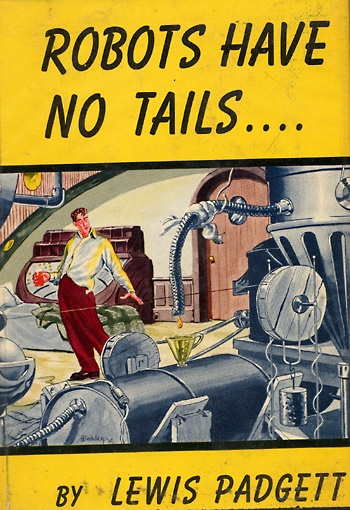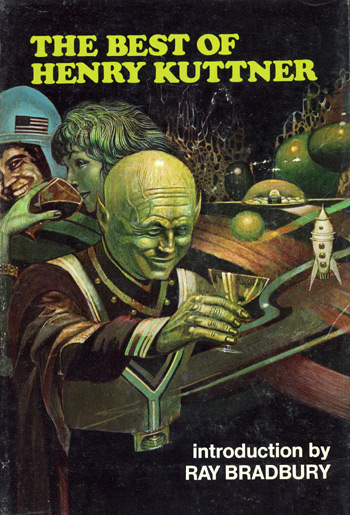Despite what marketing droids and sleazy investment gurus may have lead you to believe, there is such a thing as synergy. Yes, 1 + 1 is sometimes equal to 100. And Henry Kuttner and his wife C.L.Moore are a case in point.
Henry Kuttner started out a bad science fiction writer. A real stinker. He had some cool friends though. Howard Phillips Lovecraft was one, Raymond Douglas Bradbury was another. At first he wrote a whole bunch of Lovecraftian tales. Not really bad ones, but completely and thoroughly copying Lovecraft’s style, settings and characters. Well, not many good things come out of copying. Then he started writing and getting in print bad pulp sci-fi and fantasy stories. Yech.
Catherine Lucille Moore also wrote crappy fantasy stories. Nothing really worth mentioning. Pulp, dreck.
And then they met each other and got married. That’s where the synergy effect came into play. One after another they started publishing stories of absolute brilliance. Real classics. “The Twonky”, “Mimsy Were the Borogoves”, “Nothing but Gingerbread Left” – some of the best short sci-fi stories ever written. An then the “Gallagher” series and “Hogbens” series. Most of these stories were written under pseudonym “Lewis Padgett”, and for a long time nobody could believe that that was really Henry Kuttner and C.L. Moore. Some bizarre rumors about the true identity of the author of these stores still float around on the Usenet.
What got me hooked on Kuttner/Moore was a story called “The Proud Robot”. It was about an alcoholic inventor by the name of Galloway. While drunk, he made himself a robot, but then could not figure out what the robot’s purpose was. That became my favorite short sci-fi story of all times. What I didn’t know, there were 4 more stories in the series: “Gallagher Plus”, “The World is Mine”, “Ex Machina” and “Time Locker”. They were collected in a book called “Robots Have No Tails”, of which there were only two editions. The first one (Gnome hardcover), became exceedingly rare (and expensive I might add): you see, in every story Galloway’s alcoholic subconsiousnes was making trouble for sober Galloway. An alcoholic protagonist was not politically correct, and thus the book suffered very slow library sales.
I’ve learned two interesting things from less rare second edition (Lancer paperback). The book got it’s name because when Kuttner was asked about the title, he said something to the effect that he did not care even if it was called “Robots Have No Tails”. The second is that Kuttner made a mistake: he called the protagonist Galloway in one story and Gallagher in another. When confronted by C.L. Moore, he corrected the mistake, explaining in another story that Galloway is the first name, and Gallagher is the family name.
This is probably the only place on the internet, where you can see a scan of the cover of the first edition of “Robots Have No Tails”

I would recommend starting with a compilation of Kuttner’s short stories, like this “Best Of..” edition with a funny cover. The alien looks very much like John Paul II :)

My edition is signed:

Henry Kuttner died young, at the height of his career. His health was damaged in the battlefields of WWII. The books he wrote with his wife are hard to find, but they are most definitely worth the effort and expense needed to obtain them. http://www.abebooks.com is probably the best place to find them.








